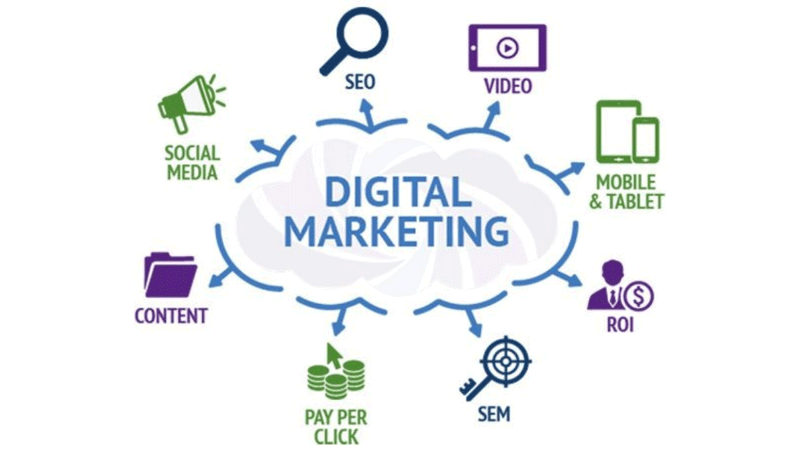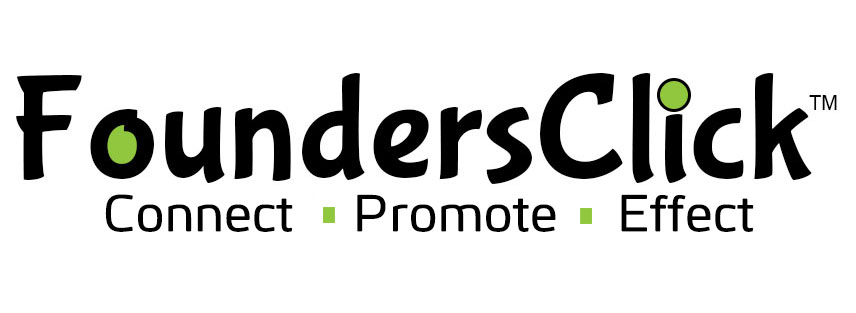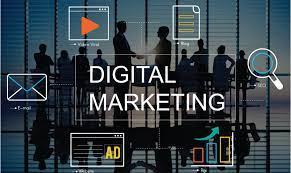In the dynamic realm of business, staying relevant and reaching target audiences has never been more challenging. With the advent of the digital age, traditional marketing strategies are being reshaped by the powerful force of digital marketing. In this blog, we'll explore the intricacies of digital marketing and how it has become an indispensable tool for businesses seeking to thrive in the modern era.

I. Understanding Digital Marketing:
-
Definition and Scope: Digital marketing encompasses a broad range of online strategies aimed at promoting products or services. This includes search engine optimization (SEO), social media marketing, email marketing, content marketing, and more. Its scope is vast, offering businesses diverse channels to connect with their audience.
-
The Digital Landscape: The rise of the internet has transformed the way consumers interact with brands. From researching products to making purchases, the entire buyer's journey has shifted online. Understanding this digital landscape is crucial for businesses looking to capitalize on emerging opportunities.
II. Key Components of Digital Marketing:
-
Search Engine Optimization (SEO): SEO is the cornerstone of digital marketing. Optimizing online content for search engines ensures higher visibility, driving organic traffic to websites. With ever-evolving algorithms, staying abreast of SEO best practices is essential.
-
Social Media Marketing: Social media platforms are bustling hubs of activity. Leveraging these platforms for marketing purposes helps businesses connect with their audience on a personal level. Engaging content, targeted advertisements, and community building are integral to successful social media marketing.
-
Email Marketing: Despite being one of the oldest digital marketing strategies, email marketing remains highly effective. Building and nurturing an email subscriber list allows businesses to deliver personalized content, promotions, and updates directly to their audience's inboxes.
-
Content Marketing: Quality content is king in the digital realm. From blog posts and infographics to videos and podcasts, creating valuable, shareable content establishes authority and fosters brand loyalty.
III. The Impact of Data and Analytics:
-
Data-Driven Decision Making: In the digital age, data is an invaluable asset. Analytics tools provide insights into consumer behavior, allowing businesses to make informed decisions and refine their marketing strategies for optimal results.
-
Personalization: Understanding customer preferences through data enables businesses to deliver personalized experiences. Tailoring content and marketing messages enhances engagement and fosters a sense of connection with the audience.
IV. Emerging Trends in Digital Marketing:
-
Artificial Intelligence (AI) and Chatbots: AI is revolutionizing digital marketing by automating tasks, analyzing vast datasets, and enhancing customer interactions through chatbots. This technology streamlines processes and improves the overall customer experience.
-
Video Marketing: With the rise of platforms like YouTube and TikTok, video content has become a dominant force. Short-form videos, live streams, and interactive content capture audience attention and drive engagement.
Digital marketing has evolved into an indispensable force in the business landscape. As technology continues to advance, staying attuned to the latest trends and adapting strategies accordingly is imperative for businesses seeking sustained success. In the digital realm, the ability to connect, engage, and provide value to the audience is the key to unlocking the full potential of digital marketing. As we navigate this ever-changing landscape, embracing the power of digital marketing is not just an option; it's a strategic necessity.

 SkillClick
SkillClick
